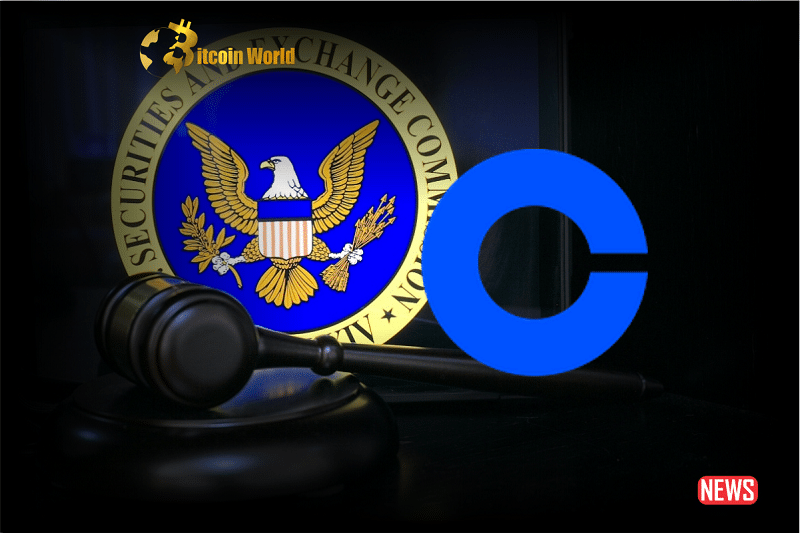The cryptocurrency world is buzzing, and at the heart of it is a major legal face-off: Coinbase versus the U.S. Securities and Exchange Commission (SEC). Think of it as a heavyweight title fight, but instead of boxing gloves, we have legal briefs and expert opinions flying. One of the latest voices to weigh in? None other than David Schwartz, the CTO of Ripple. Let’s dive into what’s happening and why it matters.
Why is Everyone Talking About This Coinbase vs. SEC Case?
This isn’t just another courtroom drama. The outcome of this case could significantly shape the future of the cryptocurrency industry in the United States. Coinbase, a giant in the crypto trading space, is battling claims from the SEC that some of its listed digital assets should be classified as securities. This is a big deal because securities are subject to stricter regulations.
The Cavalry Arrives: Amicus Briefs Take Center Stage
Imagine a supporting cast of heavy hitters stepping into the arena. That’s essentially what Amicus Curiae briefs are. These are legal documents filed by individuals or organizations who aren’t directly involved in the case but have a strong interest in the outcome. And in the Coinbase vs. SEC saga, the support for Coinbase has been significant. We’re talking about industry giants and legal minds:
- Industry Titans: Firms like Andreessen Horowitz (a16z) and Paradigm have thrown their weight behind Coinbase.
- Legal Luminaries: Six prominent law professors from prestigious universities like Yale, the University of Chicago, and UCLA have submitted briefs backing Coinbase.
- Political Voice: Even Senator Cynthia Lummis has made her stance clear on Capitol Hill.
These filings essentially argue that the SEC’s approach could stifle innovation and that the current regulations aren’t a perfect fit for the unique nature of cryptocurrencies.
David Schwartz Weighs In: Spotting Potential Weaknesses
But it’s not all smooth sailing for Coinbase’s supporters. David Schwartz, a key figure in the Ripple ecosystem (which has had its own run-in with the SEC), offered a nuanced perspective. While acknowledging the strong support for Coinbase, he pointed out a potential gap in the Amicus briefs. Specifically, he highlighted the importance of the Supreme Court’s Joiner case.
What’s the Deal with the Joiner Case?
The Joiner case is a landmark ruling that helps define what constitutes an ‘investment contract’ – a key aspect of determining whether something is a security. Schwartz suggests that the Amicus briefs might not have fully addressed the implications of this ruling in the context of Coinbase’s operations.
Fragile Foundation? Experts Question the SEC’s Case
Interestingly, the sheer volume of Amicus briefs supporting Coinbase has led many legal experts to believe that the SEC’s case might be on shaky ground. Adding fuel to this fire, the lawyer representing XRP holders decided not to file an Amicus brief, reportedly due to the perceived weakness of the SEC’s arguments against Coinbase. This speaks volumes!
Think of it this way: if a seasoned legal professional sees the opposing side’s case as weak, it raises serious questions about its viability.
The Secondary Market Debate: Are Crypto Trades Securities?
A central argument in Coinbase’s defense is that simply trading digital currencies on secondary platforms shouldn’t automatically classify them as securities. This view gains traction from the Ripple case ruling, where Judge Analisa Torres made a distinction between the initial sale of tokens and their subsequent trading on exchanges.
Considering these factors, many observers believe Coinbase has a strong chance of winning this legal battle. The momentum seems to be shifting in their favor.
The Bigger Picture: SEC Scrutiny and the Future of Crypto
This Coinbase case isn’t happening in a vacuum. The SEC has been ramping up its scrutiny of the cryptocurrency industry. The recent $24 million settlement with Bittrex for operating as an unlicensed exchange is a clear example of this increased regulatory pressure.
Will We See a Spot Bitcoin ETF Anytime Soon?
This intensified scrutiny also casts a shadow over the much-anticipated approval of a Spot Bitcoin ETF (Exchange Traded Fund). A former SEC attorney, John Reed Stark, believes the current SEC is unlikely to give the green light to such an application for various reasons. He suggests a more crypto-friendly stance might be needed from a future administration for spot ETFs to gain approval. Historically, the SEC has been hesitant about spot Bitcoin ETFs, repeatedly rejecting applications.
The Takeaway: A Pivotal Moment for Crypto
The legal fight between Coinbase and the SEC is more than just a company defending itself. It’s a landmark case that has the potential to redefine the regulatory landscape for the entire cryptocurrency industry. The influx of Amicus briefs, the scrutiny of the SEC’s arguments, and the broader context of regulatory pressure all contribute to a fascinating and crucial moment for the digital asset space.
Ultimately, the outcome of this case will have significant implications for how cryptocurrencies are regulated, traded, and adopted in the United States. Keep an eye on this one – it’s a story that’s still unfolding!
Disclaimer: The information provided is not trading advice, Bitcoinworld.co.in holds no liability for any investments made based on the information provided on this page. We strongly recommend independent research and/or consultation with a qualified professional before making any investment decisions.




